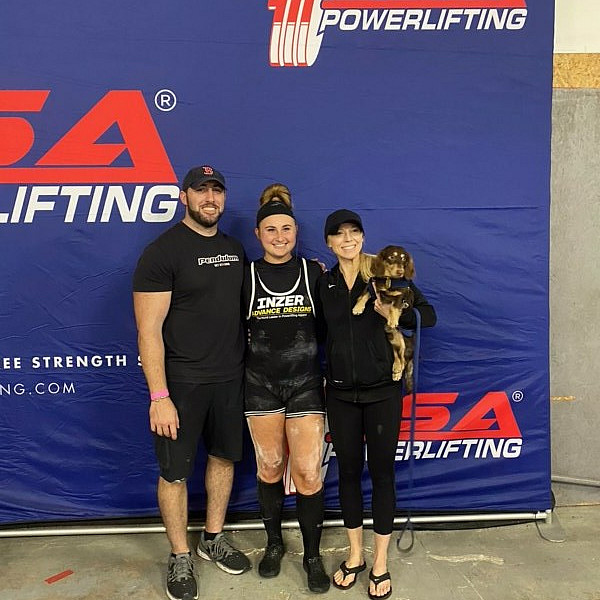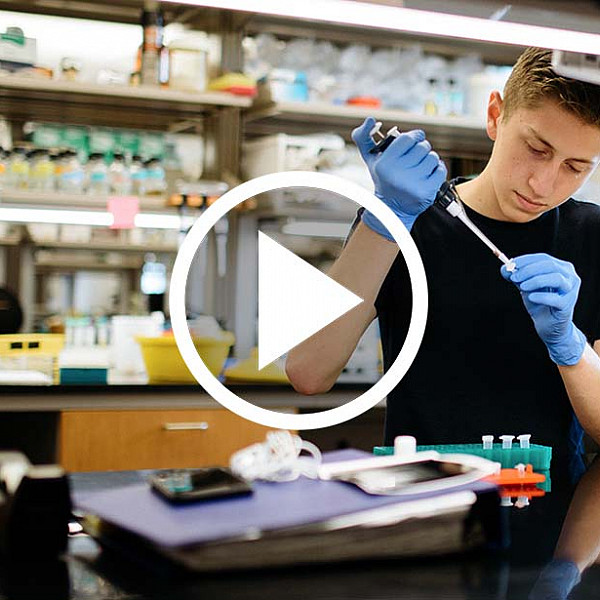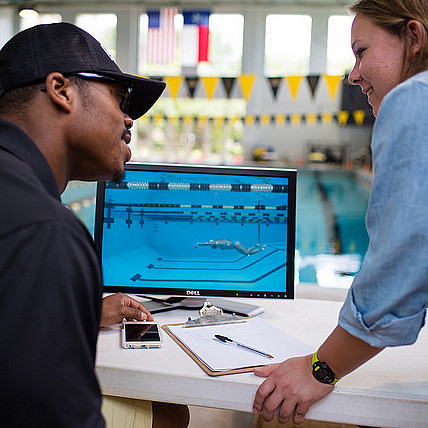News
A Weighty Experience
Corban Ruiz ’22 strengthens his skills—and his résumé—through SCOPE.
August 31, 2021
August 31, 2021
Getting into medical school isn’t easy, and many students worry that their application may not be strong enough. While grades and test scores remain important, medical school admission teams are increasingly looking for well-rounded candidates with research and professional experience. While meeting with his advisor during his sophomore year at Southwestern, Corban Ruiz ’22 quickly identified one way he could improve his chances of getting into the medical school of his choice.
“I have a lot of real-world experience, but to round out my résumé, I wanted to get some research under my belt,” explains Ruiz, who earned more than 3,000 clinical hours while working as a combat medic in the U.S. Army for four years and hopes to return to the military after receiving a medical degree.
Ruiz decided to apply to Southwestern’s Summer Collaborative Opportunities and Experiences, or SCOPE, program. Through SCOPE, students partner with faculty and fellow students to engage in scholarly and creative inquiry. Ruiz was particularly interested in working with Associate Professor of Kinesiology Edward Merritt, who was leading a project on muscle-health requirements for exercise-induced weight loss.
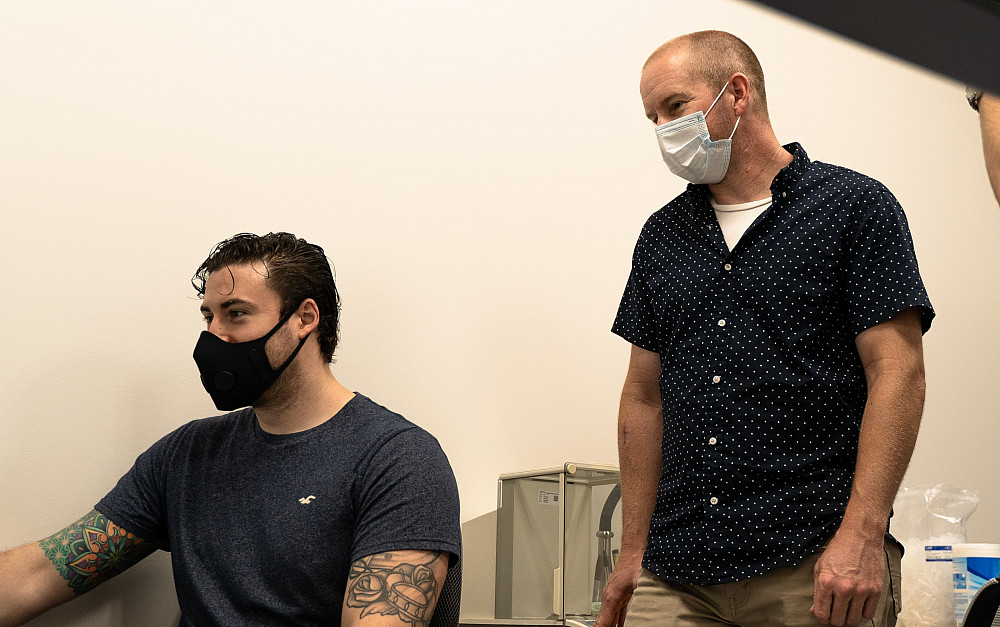
Second time’s the charm
Ruiz was accepted to the program for the summer of 2020, but the COVID-19 pandemic thwarted his plans. Instead of conducting hands-on, in-person research, the kinesiology students participating in SCOPE learned data-analysis tools and techniques remotely.
“We’re kinesiology people, not computer people. I personally don’t know very much about coding at all,” Ruiz says. “This was a good skill to learn, but it wasn’t what we had planned.”
A year later, SCOPE projects were allowed to resume as designed. Ruiz and Lukas Karrett ’22 were selected to work alongside Merritt over the course of the eight-week program.
“When an overweight person walks into their doctor’s office, the big thing they’re told is to be more active. That’s basically a blanket statement healthcare professionals make,” he says. “The purpose of our study was to show how generally ineffective exercise by itself is at weight loss.”
Marks and measures
The students began by recruiting volunteers through social media, flyers, and word of mouth. They ended up with 52 viable participants, who agreed to undergo a series of tests.
“We tested VO2 max, which is your body’s maximum ability to utilize oxygen at your highest aerobic intensities. We did a body analysis with the DEXA machine. And we tested handgrip strength and leg isometric knee extension strength. A few participants allowed us to do a muscle biopsy,” Ruiz says. “We also had people fill out a questionnaire about their weight history.”
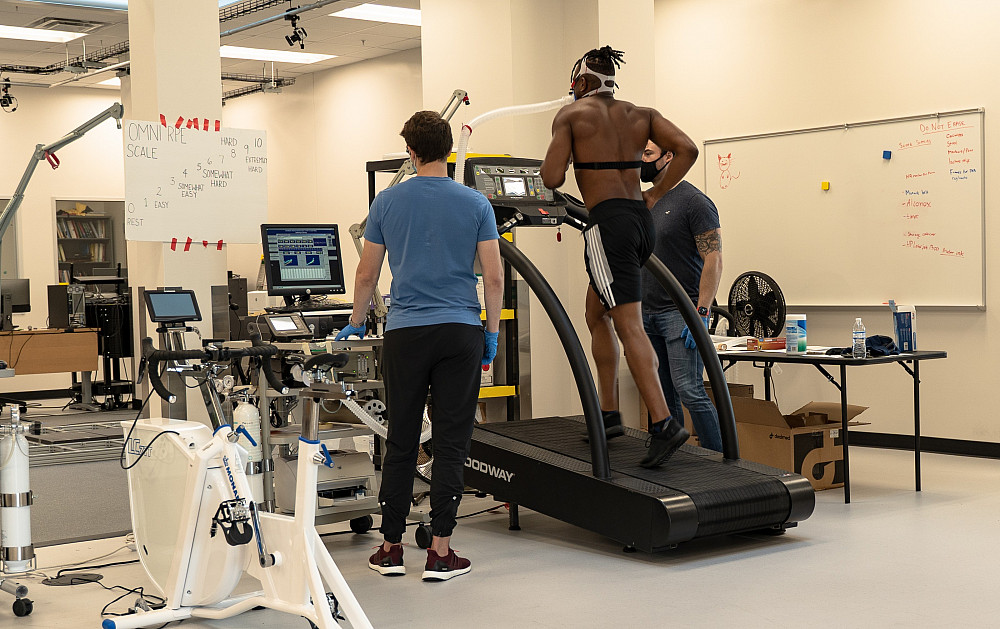
The team then analyzed the data. As expected, the results underscored the importance of a healthy diet when it comes to weight loss.
“The fittest participant had a VO2 max of over 4.5 liters of oxygen per minute. You can theoretically work out at about 80%–85% of that VO2 max for long durations. If that individual could sustain a high exercise intensity of 4 liters of oxygen per minute for an hour, he would burn about 1,000–1,200 calories,” Ruiz explains. “The average male would only burn about 500–600 calories in that time frame. If you think about it, it’s very easy to consume that amount in one sitting. We found that in terms of actual weight loss—significant weight loss—dieting is more important. ”
Low risk, high payoff
Ruiz believes that participating in SCOPE allowed him to gain valuable skills that will help him professionally, such as collecting standard measures in the field of kinesiology and working with study participants. He also benefited personally, he notes.
“This project completely redefined my understanding of exercise as a whole for weight management,” he says.
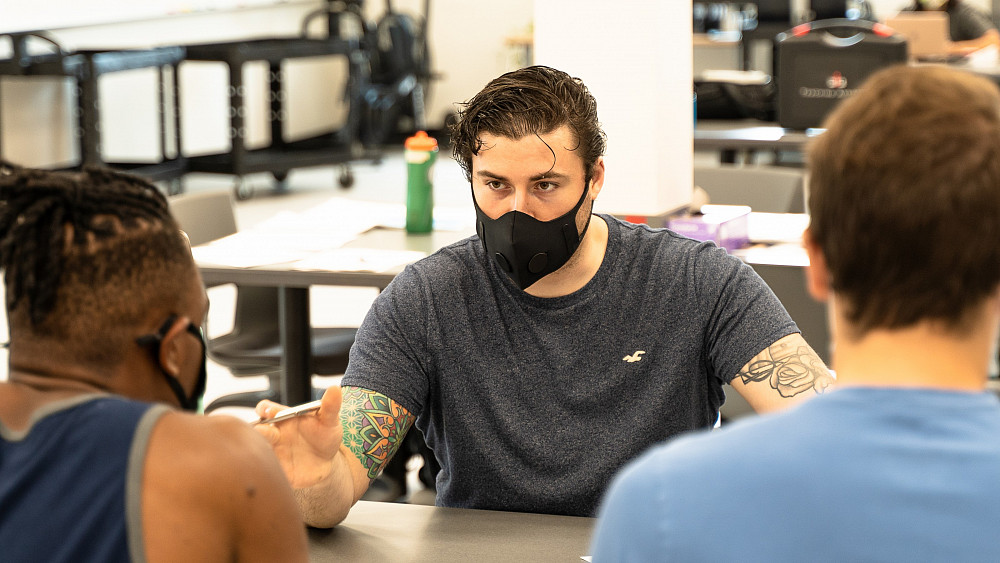
In hindsight, Ruiz would change a few things. Questionnaire responses were inconsistent, and he wishes the team had reviewed the responses earlier in the process to ensure they had captured the desired data. Some participants didn’t fill out the questionnaire completely, and others responded incorrectly, providing their weight from 10 years ago instead of 5 years ago, for example. He also believes the team could’ve been better organized from the beginning.
But that’s all part of what makes SCOPE such a valuable opportunity, he notes.
“You get to learn. You get to make mistakes,” he says. “The next time you are a part of some kind of research project, whether it’s while getting your Ph.D. or in your career, you’ll have already had the training-wheel experience.”















